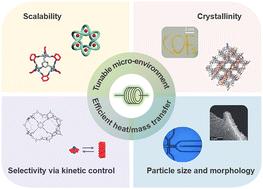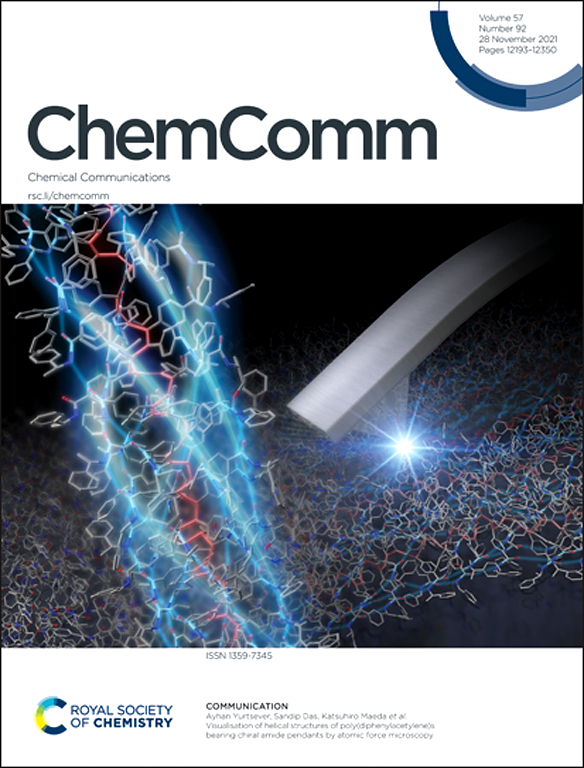在连续流动条件下自组装
IF 4.2
2区 化学
Q2 CHEMISTRY, MULTIDISCIPLINARY
引用次数: 0
摘要
自组装在层次化超分子结构和功能材料的形成中起着至关重要的作用。流动化学在自组装过程中的应用已经引起了人们的极大关注,因为它具有控制复杂分子和纳米结构形成的增强能力。与传统的批处理工艺相比,基于流动的系统可以更好地调节关键反应参数,如混合动力学、温度梯度和停留时间,从而促进连续和可扩展的合成。本文综述了流动条件下自组装的最新进展,强调了四个领域的优势:可扩展生产,控制选择性的机会,提高产品结晶度,精确调节颗粒形成的大小和形态。从文献中选择的案例研究,包括我们在这一领域的工作,将被讨论,以证明基于流动的技术对于制造超分子结构是有价值的,并且代表了先进材料科学的一种有前途的方法。本文章由计算机程序翻译,如有差异,请以英文原文为准。

Self-assembly under continuous flow conditions
Self-assembly plays a crucial role in the formation of hierarchical supramolecular structures and functional materials. The use of flow chemistry for self-assembly processes has garnered significant attention due to its enhanced ability to control the formation of complex molecular and nanoscale architectures. Compared to conventional batch processes, flow-based systems offer improved regulation of key reaction parameters, such as mixing dynamics, temperature gradients, and residence time, facilitating continuous and scalable synthesis. This review examines recent advances in self-assembly under flow conditions, highlighting advantages in four domains: scalable production, opportunities to control selectivity, improved product crystallinity, and precise regulation of size and morphology in particle formation. Selected case studies from the literature, including our work in this field, will be discussed to demonstrate that flow-based technology is valuable for the fabrication of supramolecular structures and represents a promising approach for advanced materials science.
求助全文
通过发布文献求助,成功后即可免费获取论文全文。
去求助
来源期刊

Chemical Communications
化学-化学综合
CiteScore
8.60
自引率
4.10%
发文量
2705
审稿时长
1.4 months
期刊介绍:
ChemComm (Chemical Communications) is renowned as the fastest publisher of articles providing information on new avenues of research, drawn from all the world''s major areas of chemical research.
 求助内容:
求助内容: 应助结果提醒方式:
应助结果提醒方式:


